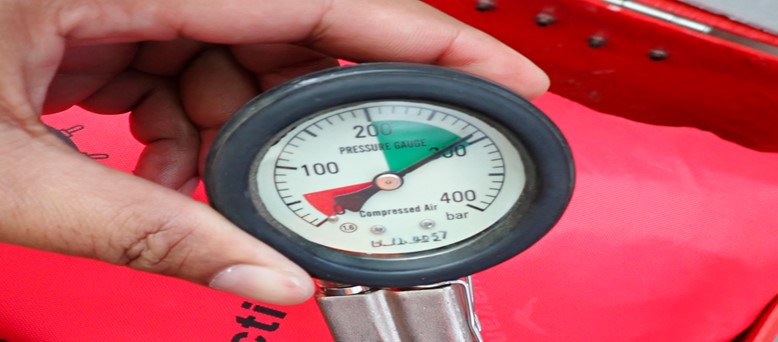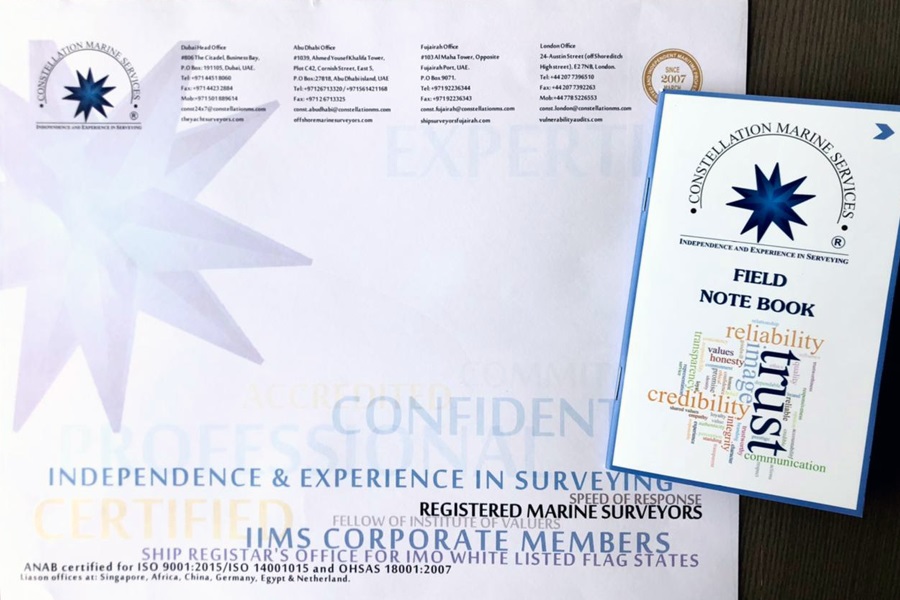The Marine Surveyor's Best Friend: A Journal That Never Lies

Picture this: You’re
standing on a dock, clipboard in hand, the wind tugging
at your notepad as waves crash against the hull of a ship
you’ve just inspected. The salty air smells of adventure
and responsibility—and you’re thinking, Do I really need
to jot down every little dent, temperature reading, or container
number? The answer, my friend, is a resounding YES.
For a marine surveyor, proper journaling and record-keeping
isn’t just a formality; it’s the backbone of your profession.
Here’s why your humble notebook (or its digital cousin)
deserves your unwavering love and attention.
Imagine this scenario: A cargo claim goes to court. Your
report is under scrutiny, and the opposing lawyer asks,
"Where exactly did you get this information?" You pull out
your field notebook, and there it is—dates, times, measurements,
and even that coffee-stained corner where you jotted down
a vessel’s unusual bow thruster vibration. Case closed.
Marine claims are often a tug-of-war, and your notes can
be the anchor. Courts demand evidence, not guesswork. Proper
journaling ensures your observations, measurements, and
assessments hold up under legal examination. A scribble
in your notebook has the potential to save millions in liability
and loss.
Confidentiality: Our Ethical Compass
Let’s not forget that maritime surveying often involves sensitive information—cargo worth millions, crew data, operational strategies. Proper record-keeping isn’t just about writing; it’s about protecting. Secure journals and encrypted digital records ensure that information stays where it belongs. Your reputation as a surveyor depends on your ability to safeguard your client’s data.
Journaling Methods: More Than Just Paper and
Pen
Gone are the days when a notebook and pencil were your only
tools (though they’re still MVPs). Here’s how modern surveyors
are keeping records:
1. Field Notebooks:
The classic. Tough, portable, and ready to capture every
detail—from cargo conditions to wind speeds. Waterproof
options are a godsend for the marine world.
2. Photographic Evidence:
A picture is worth a thousand words. Dents, damages, or
deviations—snap them all. But remember, photos should always
be timestamped and backed up.

3. Voice Notes:
Quick reflections while inspecting a site? Dictate observations into a recorder or app. Just make sure to transcribe them later.
4. Digital Journals and Apps:
Many surveyors use tools like Evernote or OneNote for organized, searchable logs. Some apps even integrate photos and voice recordings into a single entry.
5. Physical Markings:
Stickers, tags, and chalk marks on containers or hulls can be lifesavers when correlating your notes with specific locations.
Notebook vs. Memory
Let’s face it: No matter how sharp you are, your memory
is no match for a notebook. Writing down observations forces
you to be accurate and leaves no room for “I think it was
around…” moments.
A piece of paper scribbled with information—even if messy—is
infinitely better than your recall after a 10-hour day of
climbing gangways and dodging forklifts. And when it’s time
to write the report, you’ll thank yourself for jotting down
the ship’s odd-smelling reefer unit at 3 PM.

Statistical Reality Check
According to a 2022 survey by the International Institute
of Marine Surveying, 78% of disputes in marine claims are
resolved faster when comprehensive field records are presented.
And in 63% of cases, photographic evidence played a pivotal
role in tipping the scales toward a fair resolution.
Embrace the Scribble
Your field notebook isn’t just a tool—it’s your partner
in crime, your safety net, and sometimes, your shield in
court. Whether it’s jotting down odd vibrations, marking
the color of a leaking fluid, or recording the precise location
of a damaged hatch, every note you take matters.
So, next time you’re tempted to skip the details, remember:
Journals don’t lie, forget, or fail to back you up when
you need them most. Treat your record-keeping like the vital
skill it is—it could be the difference between a well-handled
claim and an operational nightmare.


